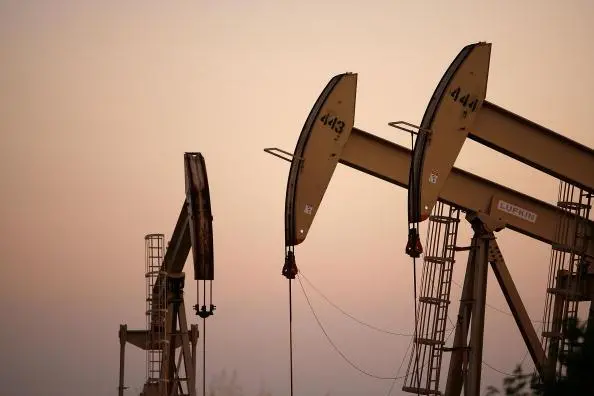PHOTO
OPEC+ has spoken and the markets reacted immediately. On Nov. 11 the Joint Ministerial Monitoring Committee (JMMC) of the 15 OPEC nations and their 10 non-OPEC allies announced that they would look at the demand-supply balance of crude oil for 2019 and decide on whether to agree further supply cuts. Oil prices jumped overnight, by between 1.5 and 2 percent.
After four-year highs in oil prices at the beginning of October, Brent and WTI retracted by 18 and 20 percent, respectively, flirting with the $70 and $60 levels per barrel at the end of last week.
In its “agreement of cooperation,” OPEC+ in late 2016 agreed to take 1.8 million barrels per day (bpd) out of the market. By May, compliance was nearing 160 percent. As markets were getting significantly tighter, the JMMC’s edict was to bring compliance down to 100 percent. They more or less reached that goal in October.
What preceded the latest oil-price spike and subsequent fall was an overestimation of how many barrels the Iran sanctions would take out of the market. Washington’s harsh rhetoric spooked markets, especially as the global economy was humming and industry bodies forecasted strong demand growth.
Then the US granted exemptions for the eight top importers of Iranian crude. At the same time the top producers in OPEC+ — Russia and KSA — pumped 11.4 million bpd and 10.7 million bpd, respectively, which coincided with a downward adjustment of global economic growth by the IMF. Both OPEC and the IEA are scheduled to give their revised demand forecasts later this week. In other words, the market expectations turned from tight to oversupply; and they did so on a dime.
Observers fear that things will get worse. In 2019, non-OPEC supply growth will accelerate. According to the EIA, the US alone will surpass the 12 million bpd mark in April, six months earlier than previously expected.
The last two months proved two things: First, as markets are getting tighter, volatility increases. Every bit of news or rumor will move the needle. Russian energy minister Alexander Novak was correct when he told CNBC that “there is a lot of volatility in the market. And what’s more this volatility could remain.”
Traders overreacted to the new sanctions on Iran. They may now not give enough weight to potential supply challenges: How much crude can Venezuela export? What about Libya and Nigeria? What if the US tightens the sanctions regime? On the downside, we should not forget that global demand will reach 100 million bpd this quarter, which is a huge threshold. The fact that markets reacted immediately to the prospect of Saudi Arabia reducing production by 500,000 bpd proves the aforementioned theory.
With non-OPEC production on the rise, it is important that the 25 nations who signed the agreement of cooperation collaborate beyond the contract’s expiry date at the end of this year. Saudi Energy Minister Khalid Al-Falih and OPEC Secretary-General Mohammed Barkindo envisage formalizing the agreement during the OPEC meeting in December.
Ever since the US assumed the position of the world’s largest producer, it became important that the other heavyweights cooperate. The US has a market economy; the government cannot wield any influence over how much the country’s oil companies produce. Shareholders would not view spare capacity as fiscally prudent — and spare capacity is what is needed to be able to balance markets.
Consumers and oil companies alike need a certain degree of predictability to go about their business. The oil price will always be market-driven and oscillate. The question is the magnitude of the swings. It is hard to run any business that depends on a commodity or produces it, when the price moves so wildly, as it has done over the past few years. Bob Dudley, CEO of BP, makes the point that he can manage at various oil-price levels, but that he needs predictability for planning purposes.
Al-Falih’s words to CNBC over the weekend prove exactly why the world needs the OPEC+ agreement extended beyond December. “We as responsible producers are going to work, and work hard, to balance the market within a reasonable corridor.”
Cornelia Meyer is a business consultant, macro-economist and energy expert. Twitter: @MeyerResources
Copyright: Arab News © 2018 All rights reserved. Provided by SyndiGate Media Inc. ( www.Syndigate.info ).
Disclaimer: The content of this article is syndicated or provided to this website from an external third party provider. We are not responsible for, and do not control, such external websites, entities, applications or media publishers. The body of the text is provided on an “as is” and “as available” basis and has not been edited in any way. Neither we nor our affiliates guarantee the accuracy of or endorse the views or opinions expressed in this article. Read our full disclaimer policy here.





















